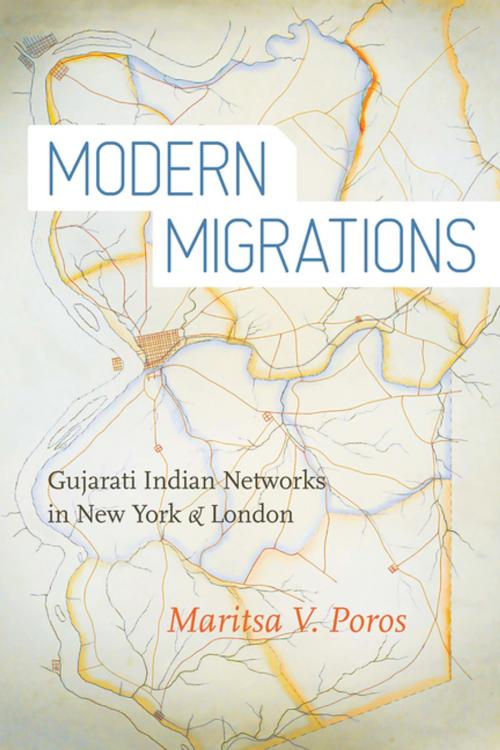Modern Migrations
Gujarati Indian Networks in New York and London
Nonfiction, Social & Cultural Studies, Social Science, Sociology| Author: | Maritsa Poros | ISBN: | 9780804775830 |
| Publisher: | Stanford University Press | Publication: | October 19, 2010 |
| Imprint: | Stanford University Press | Language: | English |
| Author: | Maritsa Poros |
| ISBN: | 9780804775830 |
| Publisher: | Stanford University Press |
| Publication: | October 19, 2010 |
| Imprint: | Stanford University Press |
| Language: | English |
Although globalization seems like a recent phenomenon linked to migration, some groups have used social networks to migrate great distances for centuries. To gain new insights into migration today, Modern Migrations takes a closer look at the historical presence of globalization and how it has organized migration and social networks. With a focus on the lives of Gujarati Indians in New York and London, this book explains migration patterns through different kinds of social networks and relations. Gujarati migration flows span four continents, across several centuries. Maritsa Poros reveals the inner workings of their social networks and how these networks relate to migration flows. Championing a relational view, she examines which kinds of ties result in dead-end jobs, and which, conversely, lead to economic mobility. In the process, she speaks to central debates in the field about the economic and cultural roots of migration's causes and its surprising consequences.
Although globalization seems like a recent phenomenon linked to migration, some groups have used social networks to migrate great distances for centuries. To gain new insights into migration today, Modern Migrations takes a closer look at the historical presence of globalization and how it has organized migration and social networks. With a focus on the lives of Gujarati Indians in New York and London, this book explains migration patterns through different kinds of social networks and relations. Gujarati migration flows span four continents, across several centuries. Maritsa Poros reveals the inner workings of their social networks and how these networks relate to migration flows. Championing a relational view, she examines which kinds of ties result in dead-end jobs, and which, conversely, lead to economic mobility. In the process, she speaks to central debates in the field about the economic and cultural roots of migration's causes and its surprising consequences.















